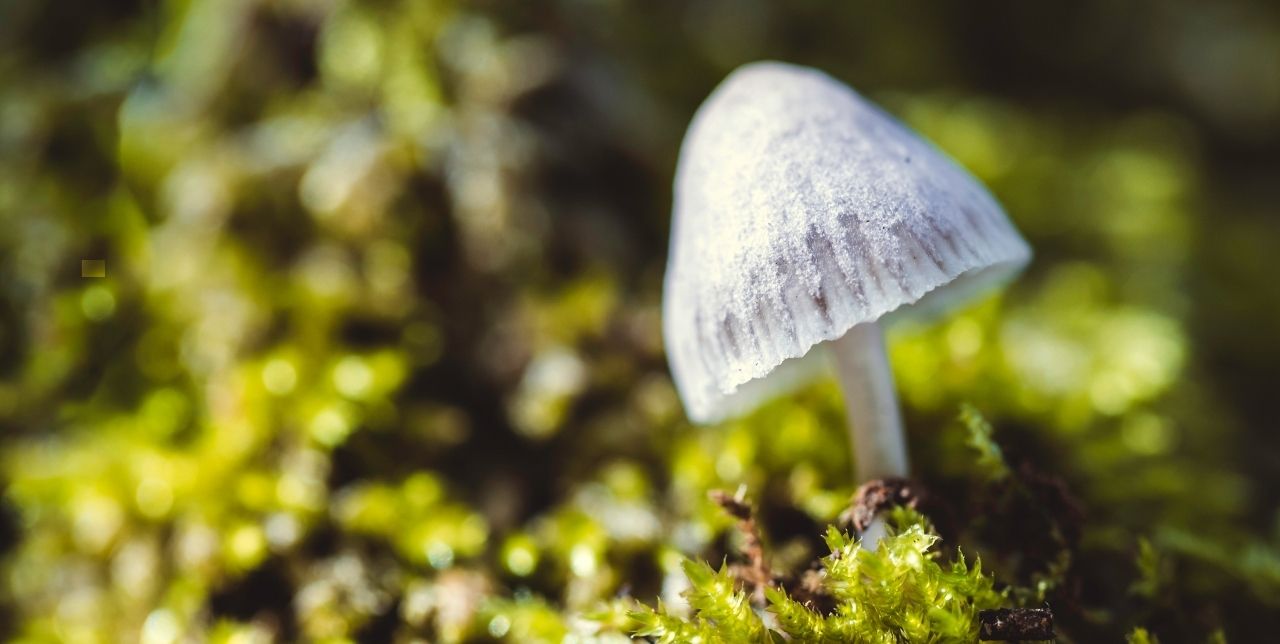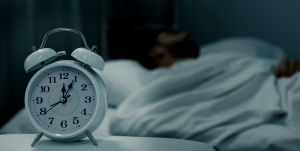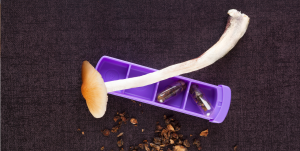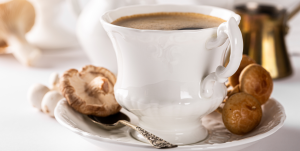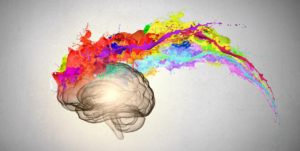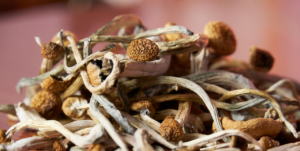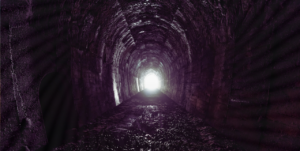Psilocybe, for the uninitiated, is a brown-capped mushroom that can send you off on an amazing psychedelic trip. Also called magic mushrooms, shrooms, golden tops, cubes, or golden caps, Psilocybe cubensis mushrooms get their magic from two active compounds: psilocybin and psilocin. Both of these are psychoactive and hallucinogenic.
Here we present you with some interesting facts about psilocybe mushrooms.
Psilocybe are not plants
Although it may appear like psilocybe mushrooms grow in soil like plants, they don’t grow directly in soil and they are not plants. All mushrooms belong to the kingdom of fungi, and not to the plant kingdom. Fungi are different from plants in an important respect. They don’t produce chlorophyll, so they can’t manufacture sugar from the sun’s energy as plants do.
They thrive in dark, damp, and humid places and grow on old wood, plant roots, rotten plant matter, and animal dung. To survive, they take nutrients from the organic material that they live on.
Psilocybe is illegal in most states
In the United States, psilocybin is a Schedule I drug under an amendment to the Controlled Substances Act. This means that, according to the US government, it has a high potential for abuse, has no currently accepted medical use and isn’t safe for use even under a doctor’s supervision. It also means that it’s illegal to have magic mushrooms in your possession.

Having said that, two states have changed their laws and other states might follow. Denver is the first state that decriminalized magic mushrooms and Oakland, California was the second. This is likely because psilocybe isn’t habit-forming, is safe for use without a doctor, and likely has a broad range of medical applications. The science that empirically proves all that simply isn’t there yet.
Psilocybe mushroom use goes back thousands of years
People have been tripping on mushrooms for eons – some historians even believe this practice goes back to 9000 B.C. That’s according to interpretations of rock paintings found in the northern reaches of the Sahara Desert.
However, many argue that while the rock paintings date back to 9000 B.C., there’s no guarantee the mushroom-like paintings actually depict psilocybe—it depends on interpretation.
Mayan and Aztec ruins in Central America also feature a number of statues and other artifacts that might represent the mushrooms. At any rate, by the time Europeans entered the New World in the 16th century, they witnessed first-hand locals using psilocybe mushrooms in rituals. Therefore, the idea that psilocybe was conferred a sacred status which was then depicted in paintings or statuary isn’t so far fetched…
People microdose psilocybe shrooms
In an effort to boost their creativity and enhance their work performance, an increasing number of professionals are microdosing psilocybe. It’s gained traction among executives working in Silicon Valley startups. They say microdosing shrooms gives them an edge in the workplace.
Microdosing, if you aren’t familiar with it, involves the regular ingestion of very small quantities of psychedelic substances. Doses this small don’t trigger hallucinations, but the quantity consumed does trigger a range of cognitive, emotional, and, mental changes. Proponents of microdosing say that they experience increased creativity, increased productivity, sharper focus, less anxiety, and a decreased need for caffeine.
There are a lot of anecdotal reports from enthusiasts who practice microdosing, but little scientific research has been done on this relatively new craze.
Scientists at Macquarie University, Sydney, Australia conducted two studies on the micro-dosing of psychedelics.
In one of the studies, researchers tracked the experiences of 98 micro-dosing participants. Participants’ had their experiences recorded every day for six weeks. They also had to complete questionnaires when they signed up for the study, as well as at the end of the study.
What was measured? Nine categories of psychological function were measured, including aspects like mindfulness, creativity, wellbeing, attention, mental health (depression, anxiety stress), mystical experiences, personality, and more. People who reported mental illness were not allowed to participate, so the scores for depression and stress were low to begin with.
The results confirmed anecdotal reports. The a review of the ratings showed that microdosing led to an improvement of all psychological functions measured on days micro-doses were administered, compared to baseline scores. Depression and stress ratings both decreased over the six weeks.
Interestingly, two factors that do influence work capacity, focus and productivity, continued to increase two days after dosing.
 Note: the study looked at the effect of other psychedelics as well such as LSD – 47.1% of the daily reports were from psilocybin micro-dosing. The findings appeared in the scientific journal Plos One
Note: the study looked at the effect of other psychedelics as well such as LSD – 47.1% of the daily reports were from psilocybin micro-dosing. The findings appeared in the scientific journal Plos One
Read more about this in our blog article on microdosing.
Psilocybe can change your personality permanently (for the good)
Ingesting psilocybe can have a lasting effect on your personality. This was the finding of researchers from Johns Hopkins University School of Medicine, Baltimore.
For their study, the scientists looked at the effect of psilocybin on changes in five broad personality traits – neuroticism, extroversion, openness, agreeableness, and conscientiousness. Neuroticism refers to the degree to which a person experiences the world as distressing, threatening, and unsafe.
Published in the Journal of Psychopharmacology, the findings surprised the researchers. The findings are not consistent with the long-held scientific belief that adults do not undergo significant changes in personality after 30.
The researchers observed significant increases in openness following a high-dose psilocybin session.
“In participants who had mystical experiences during their psilocybin session, Openness remained significantly higher than baseline more than one year after the session’’, wrote the scientists.
The researchers describe openness as encompassing aesthetic appreciation and sensitivity, imagination and fantasy, and broad-minded tolerance of others’ viewpoints and values.
A mystical experience encompasses feelings of unity and interconnectedness with all people and things, feelings of peace and joy. It’s an experience beyond mundane reality, and those who have the experience believe that it has something to do with the nature of the universe – in other words, it offers insights into our existence and the cosmos around us.
This experience has been known to have completely change some people’s lives, with massive epiphanies completely upending their priorities and attitudes.
These are just a few interesting facts about psilocybe mushrooms. The more you learn, the more fascinating they become!
Microdosing and Sleep: Exploring the Correlation
Microdosing, the practice of taking small, sub-perceptual doses of psychedelics, has gained popularity. Many enthusiasts report various benefits, including enhanced creativity, improved mood, and better […]
Read MoreBest Mushroom Strains for Microdosing
Microdosing magic mushrooms has gained popularity for its potential to boost creativity, improve mood, and enhance focus. However, choosing the right mushroom strain is crucial […]
Read MoreMagic Mushroom Blends: The Best Combos for Wellness
Magic mushroom blends with non-psychedelic mushrooms and herbs can enhance their benefits and create unique experiences. Combining these elements in microdose capsules and teas can […]
Read MoreMagic Mushrooms and Creativity: Enhancing Your Artistic Vision
Magic mushrooms and creativity: what is the actual correlation? Creativity is often described as a mysterious force, a spark of inspiration that lights up the […]
Read MoreMagic Mushrooms: How Often? Dosage and Frequency
Magic mushrooms, or psilocybin mushrooms, have gained a lot of attention recently for their potential therapeutic benefits. From enhancing creativity to managing depression, the reasons […]
Read MoreMushroom Bad Trip: Immediate Actions and Prevention Tips
Venturing into the world of psychedelic mushrooms can be an enlightening experience, but it’s not without its risks. One of these is the dreaded mushroom […]
Read More